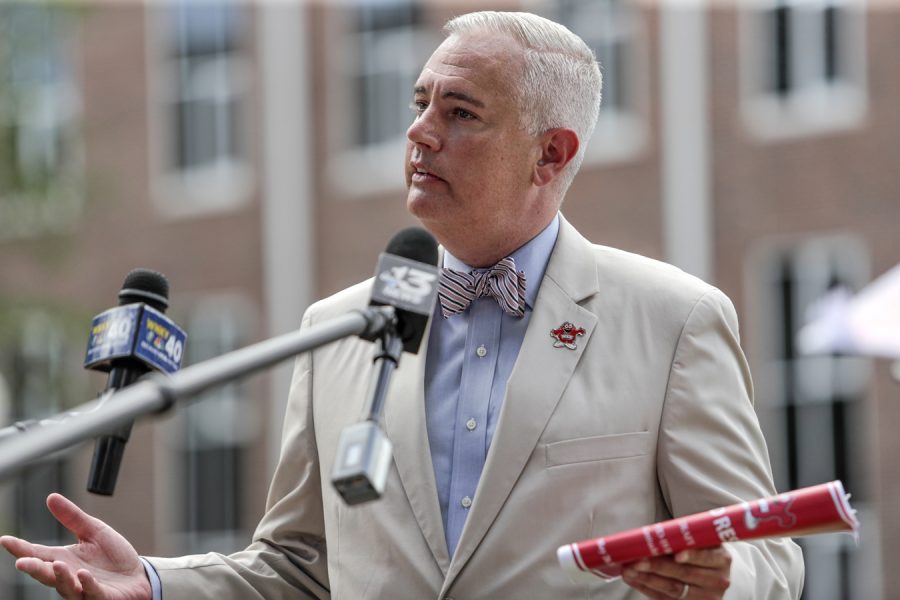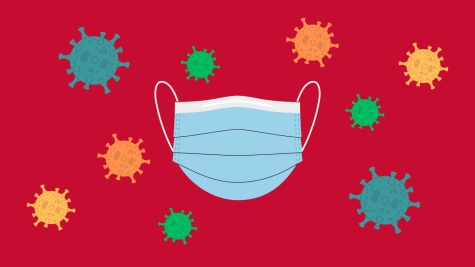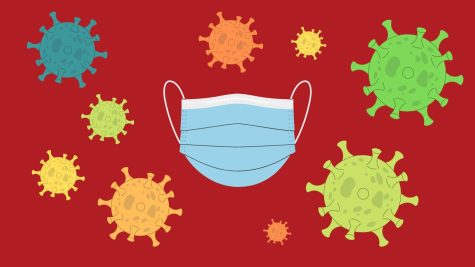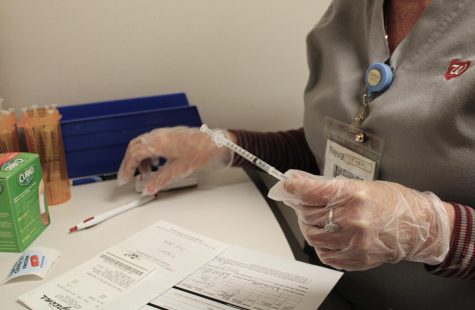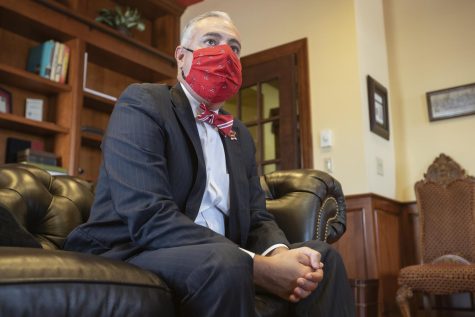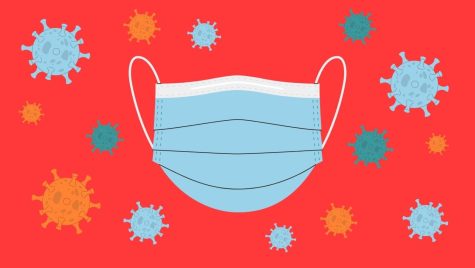WKU announces ‘Big Red Restart’ plan, seeks public comment
May 28, 2020
WKU rolled out a draft of its plan to reopen campus for the Fall 2020 semester, with President Timothy Caboni saying on Thursday that classes would begin as scheduled on Aug. 24, with in-person instruction ending the Friday before Thanksgiving.
Under the plan, called Big Red Restart, the final week of classes, Nov. 30-Dec. 4, would be conducted remotely, as would final exams during the week of Dec. 7. Classes would be held on Labor Day and there would be no fall break under the plan, and class times would be shortened by five minutes to give people more time to get from one class to the next on a socially distanced campus.
“We’ve been working really hard with a set of guidelines to build this plan, the first of which is of paramount importance to our university, the safety of students and the entire community,” Caboni said in a news conference shortly after the plan was emailed to students, faculty, staff and certain alumni.
The draft, which can be found at wku.edu/restart, is open for public comment until 8 a.m. Monday.
“This will be a living document during the course of the summer with multiple iterations,” Caboni said. “As we learn, we will change. We will be nimble and creative. At the end of the day, it’s going to require all of us doing things differently…”
“This August will not look anything like last August, and that’s OK,” he said. “We’re all going to be learning to live beside this virus.”
According to the Big Red Restart draft, students will be required to wear protective face masks when they are in publicly shared spaces, such as classrooms, hallways and riding Topper Transit buses. Classrooms will be reconfigured in accordance with social distancing guidelines. The draft stated that social distancing guidelines are in observance when there is at least six feet of space in all directions.
If there is no way for people to observe these guidelines in a public area on campus, anyone present must wear a protective face mask. Caboni said he expects people to bring their own masks, since they have become common for everyone during the global coronavirus pandemic.
Everyone — faculty, staff and students — will be asked to check themselves for a fever on a daily basis. “If you don’t feel well, or if you have a temperature, I want you to hear this from me today,” Caboni said. “Stay home.”
Large classes could face major changes.
“We’ve taken a look at all the courses that we offer,” Caboni said. “We have 190 or so of them that are over 50 students and we’re going to think differently about how we offer them.”
According to the draft, department heads can decide whether or not a class with a capacity of 50 or more can meet in-person. If a department head decides that a class with 50 or more students should be allowed to meet in-person, they must consult with Academic Affairs when identifying a location for the class. Students who are affected by this process will be notified of a decision by July 1.
In any classroom, the draft suggests that social distancing can be observed in three different ways. The class could spread out desks in the classroom, they could leave an empty desk between students, or they could limit the number of students who sit at a single table.
Some classes, he said, may be partially online, or have alternating days where half of the class participates online and the other half is in person. He said WKU is investing in technology that will allow 80 percent of its classrooms to be equipped to allow distance-learning techniques such as Zoom.
The plan also asks for everyone in the WKU community to be tested for COVID-19 before returning to campus. Caboni said WKU would be performing COVID-19 case management and contact tracing in a partnership with the Barren River Health Department and the Graves Gilbert Clinic.
Students who live in dorms and become infected with the virus will be isolated in a location that will be designated by Housing and Residence Life.
Caboni said that student organizations events are important to him, but he wants organizers to consider whether or not their events should be held solely in person.
“Everything we do will be done differently,” Caboni said. He said certain campus traditions, such as MASTER Plan, fraternity and sorority recruitment, tailgating and other activities, are important but will be different than in the past. “If you ask me today what does tailgating look like, I don’t know what tailgating looks like before a football game in this environment, but we’re going to have to figure that out before we get to August.”
The draft stated that the Department of Facilities Management will clean and disinfect high-touch public areas at least twice a day, but those with private offices will be responsible for cleaning and disinfecting their own workspaces. Hand sanitizer will be available for use in university building entrances.


